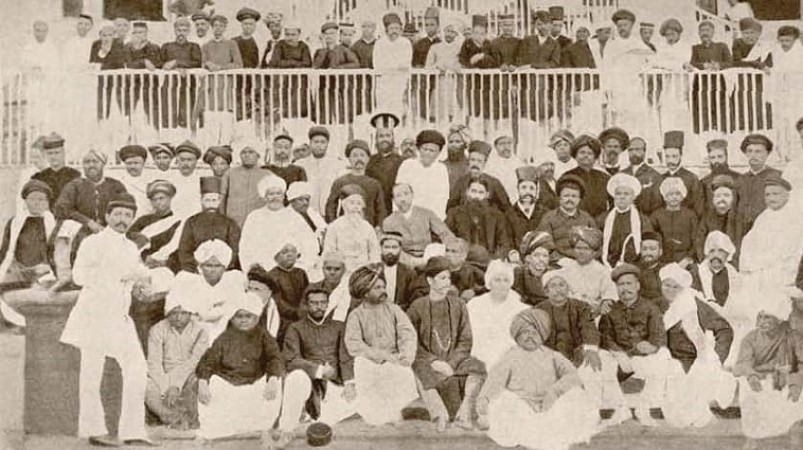
This Day in History- December 28: The year 1885 marked a significant juncture in India's history—the genesis of the Indian National Congress (INC) on December 28th. This historic event unfolded at the Gokuldas Tejpal Sanskrit College in Bombay, where 72 delegates converged to lay the foundation of a movement that would reverberate through time. Charles Allan Hume, assuming the mantle of General Secretary, joined hands with Womesh Chunder Bonnerjee, the elected president from Calcutta, to initiate a transformative journey that would shape the destiny of a nation striving for emancipation.
Amidst the assembly of visionaries, the founding group comprised not only Indians but also included two British figures—William Wedderburn and Justice John Jardine, both Scottish civil servants. Their presence signified a collaborative endeavor, a melding of voices echoing the need for change and progress in a land deeply yearning for autonomy.
From its inception until 1905, the Indian National Congress articulated its aspirations and agitations through a series of resolutions passed during its annual sessions. These resolutions served as a compass, guiding the Congress's trajectory towards civil, administrative, constitutional, and economic reforms.
Civil Rights stood as the cornerstone of Congress's agenda. The leaders ardently championed fundamental liberties—freedom of speech, press, assembly, and peaceful protest. These rights, they believed, were the bedrock of a just and emancipated society.
In the realm of Administration, Congress vehemently advocated against administrative malpractices. The clamor for Indian representation in government services echoed loud, intertwined with appeals for the establishment of agricultural banks to alleviate the plight of the peasantry. Additionally, the Congress leaders adamantly opposed discriminatory laws, vocalizing their dissent against biased governance.
Constitutional reforms emerged as a pivotal discourse. Congress strived to amplify the powers of legislative councils, urging for the inclusion of elected Indian representatives. However, the British government's indifference towards these demands stood as a stark testament to the challenges faced in effecting substantial constitutional changes.
Economically, the Congress critiqued the British government's policies, attributing rising property prices and economic woes to their governance. Proposals for industrial modernization, Indianization of public services, and the abolition of the salt tax—aimed at uplifting the impoverished—formed the crux of their economic agenda.
The legacy of the Indian National Congress extends far beyond mere resolutions; it embodies the resilience and unity of a diverse populace rallying for a common cause. Its early years laid the groundwork for a relentless pursuit of freedom, equality, and self-determination—a pursuit that resonates through India's rich tapestry of history.
In retrospect, the INC's foundational years serve as a testament to the power of collective action, serving as an everlasting beacon inspiring generations to uphold the values of democracy, justice, and progress. The Congress's journey from its nascent stage in 1885 reverberates as an indelible chapter, reminding us that the spirit of unity and determination can surmount even the most formidable obstacles on the path to societal transformation and progress.
Congress Summons Himachal Pradesh Cabinet for Crucial Delhi Meeting
Madhya Pradesh Congress Dissolves Executive Team After Election Setback